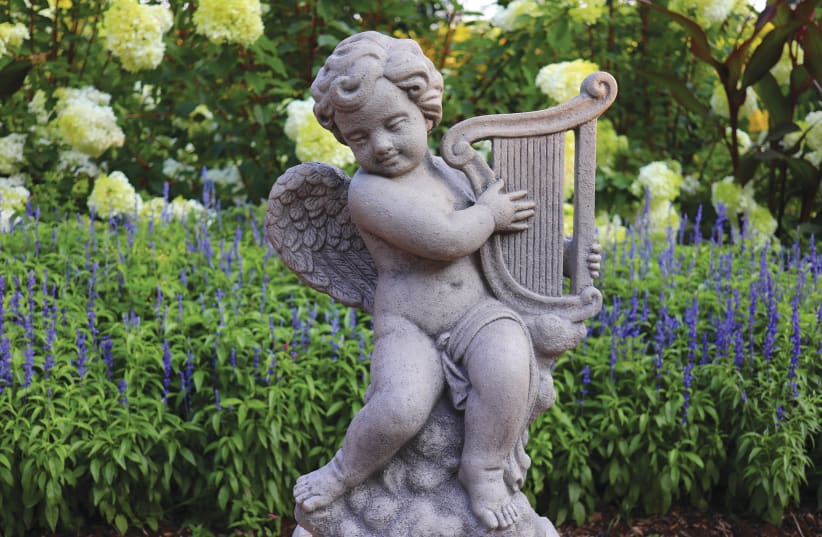Theories of reincarnation are found in many religions and cultures, ancient and modern. Close to home, the Druze believe in reincarnation, and that at the end of the cycle of rebirth, which is achieved through successive reincarnations, the soul is united with the Cosmic Mind.
In Judaism, there are no references to the idea in the Bible or the Talmud, and there is a prohibition on attempting to make contact with the dead – although King Saul does communicate with the Prophet Samuel after the latter’s death (1 Samuel: 28).
Earthquake NDE survivor Maayan Sabbag cited the extensive research by Dr. Brian Weiss, an American-Jewish psychiatrist who has sold millions of books on past-life regression and the survival of the soul after death.
“He relates that formal religion tried to block people from thinking about life after death because then they wouldn’t be obedient. Like, if there’s reincarnation, then why do I have to behave and be responsible in this life? In Judaism, the rabbis formed a unified front and stopped speaking about it.”
According to Brigitte Kashtan, the three monotheistic religions agree there is an afterlife, but it has been buried under centuries of prohibitions.
“In Judaism, the truth has been hidden and is forbidden to learn in order to better control the people,” she says.
According to the late British theologian Rabbi Louis Jacobs, the concept of reincarnation was unknown in Judaism until the eighth century, when it began to be adopted by the Karaites, a sectarian Jewish group.
“The kabbalists, on the other hand, do believe in reincarnation. The Zohar [the 13th-century kabbalistic text] refers to the doctrine in a number of passages,” he wrote in an article on MyJewishLearning.com.
There are instances in Judaism in which reincarnation has also been viewed as punishment for a sinner’s previous deeds.
“For example, a rich man who abused his power may come back as poor. Rabbi Haim Vital, a student of the Ari, has compiled a list of those reincarnated in Jewish history,” he wrote.
“Nahmanides, in his commentary to the Book of Job (Job 33:30), speaks of reincarnation as a great mystery and the key to an understanding of many biblical passages. The later Kabbalah is full of the belief in the transmigration of souls. Various sins are punished by particular transmigrations. For example, the soul of an excessively proud man may enter the body of a bee or a worm until atonement is attained.
“The heroes of the Bible and later Jewish histories are said to be the reincarnation of earlier heroes. Thus the soul of Cain (Genesis 4:1-16) entered the body of Jethro and the soul of Abel the body of Moses. The hassidim believe explicitly in the doctrine, and tales are told of hassidic masters who remembered their activities in a previous incarnation.”
According to Rabbi Barry Schlesinger of Masorti congregation Torat Hayyim in Herzliya, the issue of communing with the dead has become blurred in modern times.
“The Torah says we’re not allowed to inquire of the dead,” he notes. “It’s prohibited to go to a cemetery and speak to the deceased and ask them to intercede in a matter. The question is, how does that enter into the equation when you have half a million people going to Netivot to pray at the grave of Baba Sali?
“In the parsha of the spies, Calev left the group and went to Hebron to the Cave of the Patriarchs. Did he pray to communicate with them? No, he prayed that God gives him the strength to stand against the majority. You could say he went to inquire of the dead, but he didn’t go to speak to them, he went to inquire of God.”
When asked what he would advise a theoretical congregant who had suffered the loss of a loved one and wanted to make contact with them, Schlesinger says he would be supportive.
“As a congregational rabbi, I would do everything in my power not to call their quest into question. I wouldn’t want to offend them.
“I’m not sure I would address their question in one sitting. Are they asking a halachic question or a spiritual one? I would raise questions of how reliable the person they are relying on is. But I would give a shoulder to lean on and identify with their decision.”
